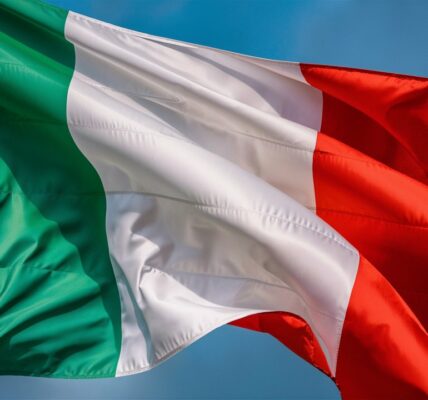No Regrets Over Iranian Letter Amid Diplomatic Criticism
President Michael D. Higgins has firmly stated that he has no regrets over his comments regarding the Israeli embassy’s circulation of a letter he sent to the newly-elected president of Iran. Despite facing criticism, particularly from Israeli diplomats, Mr. Higgins remains unapologetic, standing by his original statements made in New York.
Last month, the letter, which was addressed to Iran’s new president, sparked controversy after being circulated on social media. In his response, President Higgins suggested that the Israeli embassy had played a role in distributing the letter, though he emphasized that he did not accuse anyone of leaking it. Speaking to journalists on Sunday, Mr. Higgins said, “You should ask where the criticism came from and how the letter was circulated and by whom and for what purpose. It was circulated from the Israeli embassy.”
Diplomatic Tensions and Accusations
While many interpreted Mr. Higgins’ remarks as an implication of a leak, a spokesperson for the President clarified that no such accusation was made. The President had merely pointed out that the embassy had circulated the letter, which was later shared on various platforms, including the Iranian website.
During a tense press conference in New York on Monday, President Higgins reiterated his stance. When asked if he regretted his initial comments after the Israeli embassy’s criticism, he replied, “Not at all.” He emphasized that the letter was a formal one, consistent with those he sends to heads of state when there is a change in leadership. The President said he focused on promoting peace in the region through his message.
“The point is that a statement was issued from the [Israeli] embassy saying the President has written and ‘why hasn’t he said this and why hasn’t he said this.’ And frankly, that was unusual, and many would regard it in diplomatic circles as improper,” he noted. “I did not use the word leak. I used the word circulated, and we have confirmed that.”
Media Responsibility and Interpretations
In the press conference, Mr. Higgins expressed frustration with how his comments had been interpreted by the media. He stressed that journalists bear the responsibility for any perceived “spin” they might put on his words, stating, “You take responsibility for your language.”
Addressing the broader context of the controversy, the President pointed out that his letter had originally appeared on Iran’s website, and shortly afterward, the Israeli embassy issued a response condemning him for sending it. “And that is that. That is the end of that,” Higgins concluded.
Taoiseach Simon Harris Responds to the Issue
Earlier the same day, Taoiseach Simon Harris also commented on the matter. He criticized the focus on the letter, considering the ongoing violence in the Middle East, particularly the situation in Lebanon. Speaking candidly, Mr. Harris said, “I’ve just come from a meeting where the Palestinian prime minister is broken down in tears about children in his own country being killed by Israel today… You’ll excuse me for not getting overly exercised about the issue of a letter.”
Harris downplayed the importance of how the letter became public, remarking that its origins were “utterly irrelevant” in light of the tragic events unfolding in the region. The Taoiseach’s remarks reflect the government’s broader focus on the humanitarian crisis rather than diplomatic disputes.
While there has been discussion between the President and the Taoiseach on the subject, Simon Harris clarified that outside of confidential article 28 discussions, Israel’s criticism of the letter has not been a significant topic of concern in their conversations.
Conclusion: A Diplomatic Dispute Amid a Larger Crisis
The ongoing diplomatic tension between Ireland, Israel, and Iran over President Higgins’ letter underscores the sensitivity of international relations, especially in the context of the Middle East. While the Israeli embassy condemned the communication, the President has stood firm, refusing to be drawn into further controversy over the matter.
As violence escalates in the region, the Taoiseach and President have expressed their focus on the tragic loss of life, emphasizing that the circulation of a diplomatic letter pales in comparison to the humanitarian issues at hand. Both leaders have made it clear that peace and stability in the Middle East remain Ireland’s primary concern, regardless of the criticism they face on the global stage.





